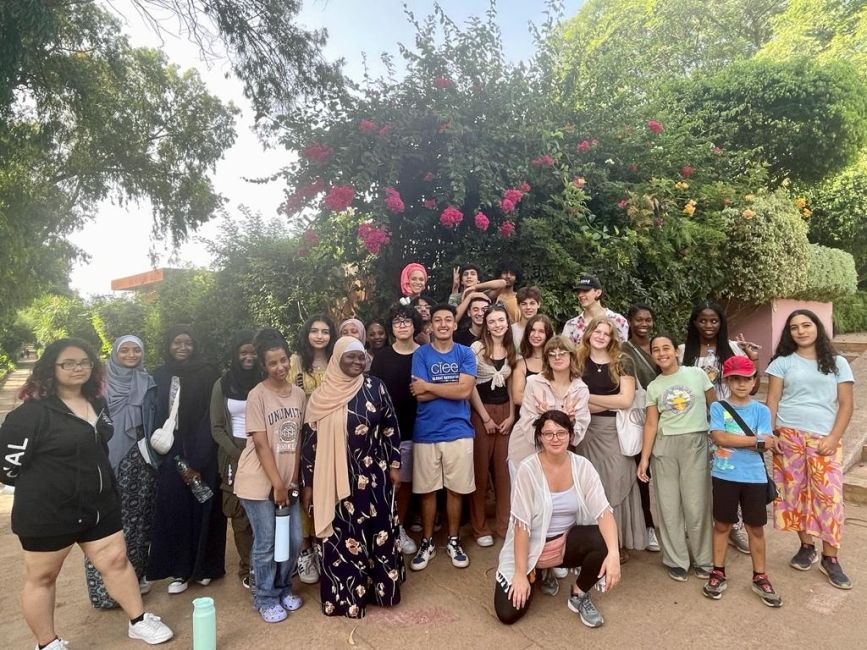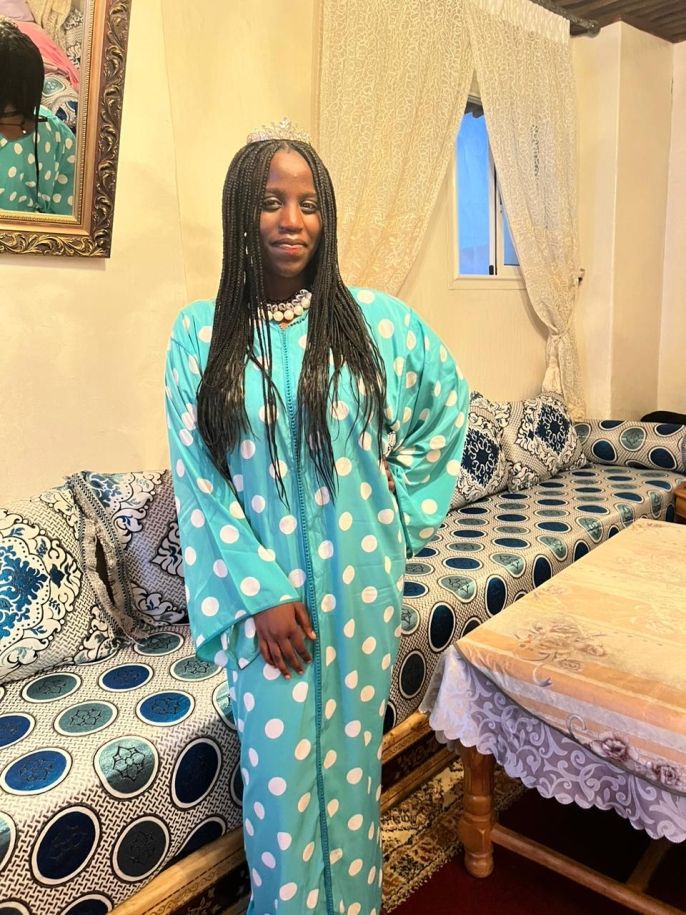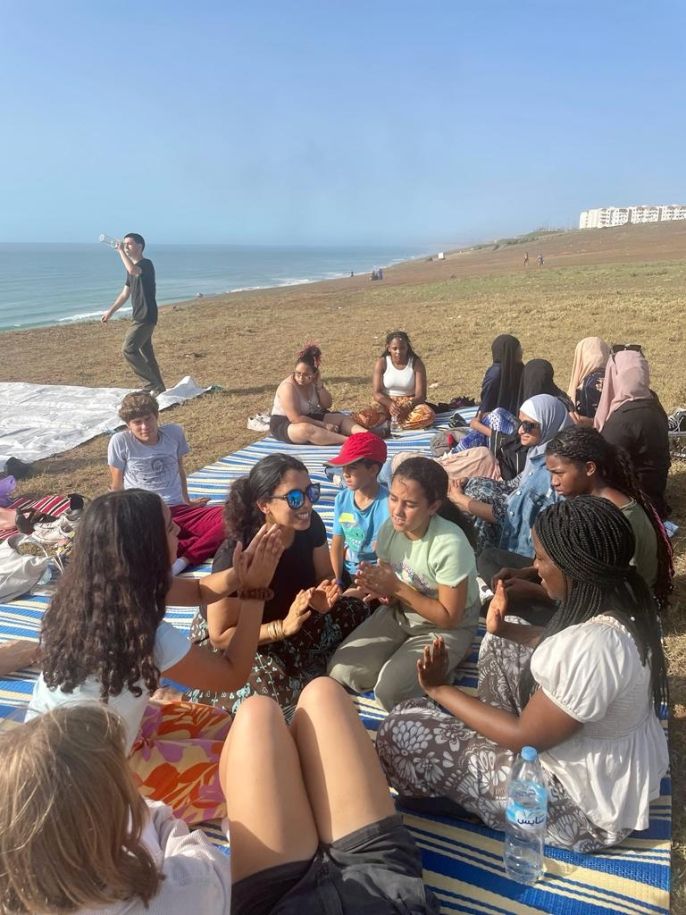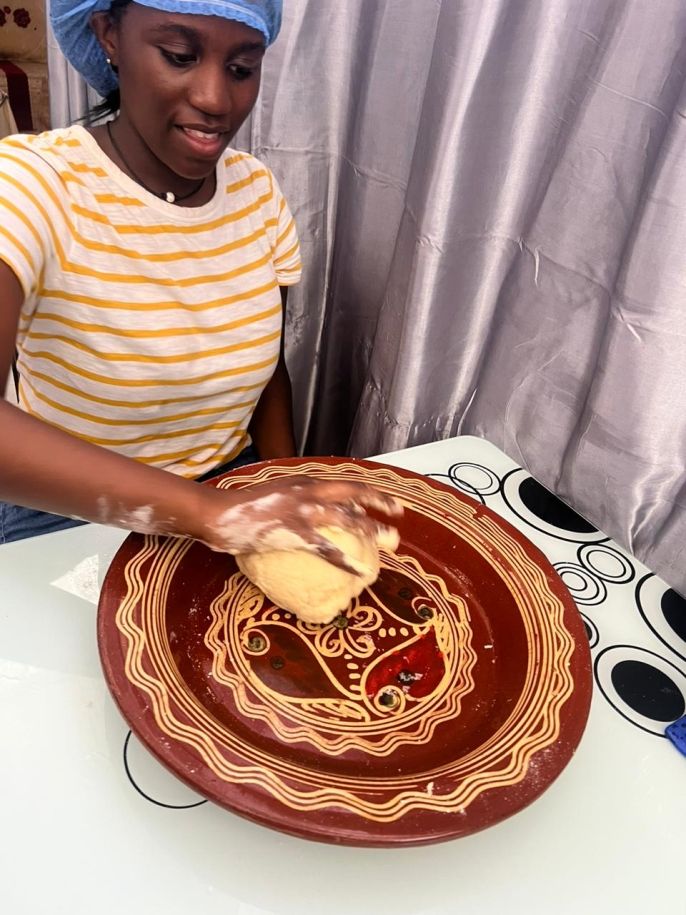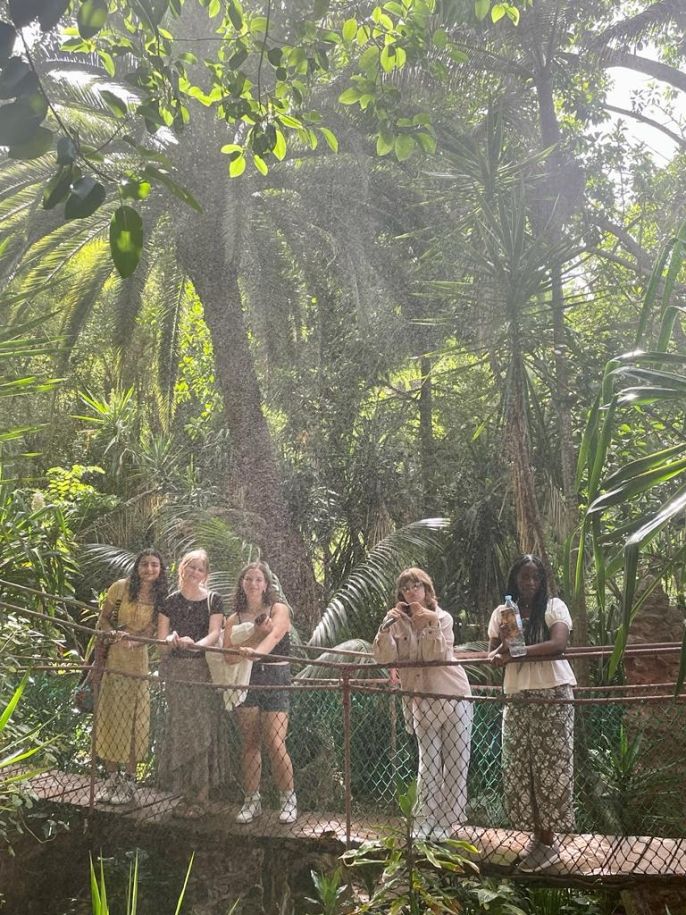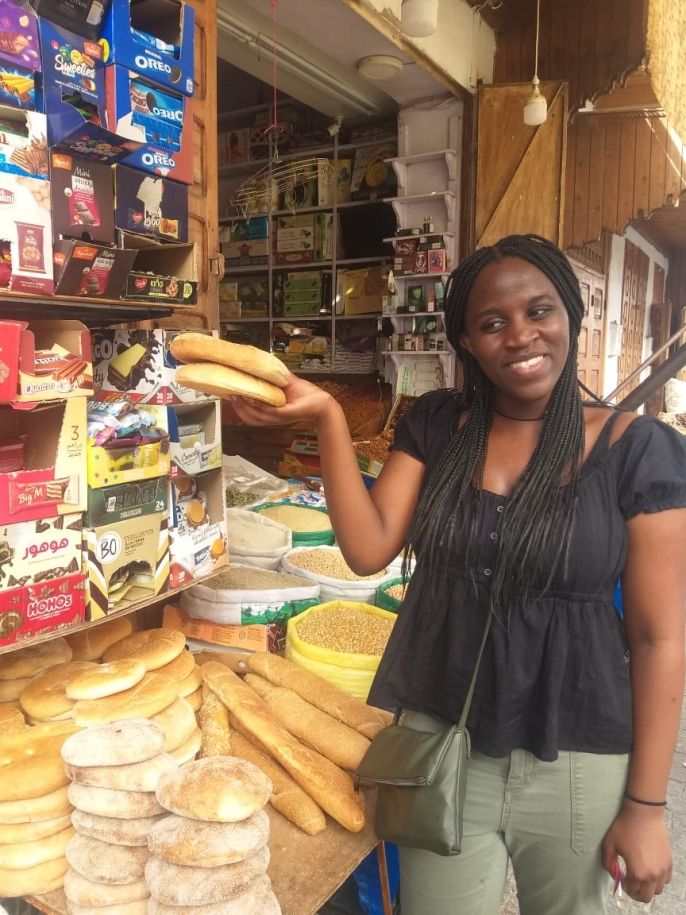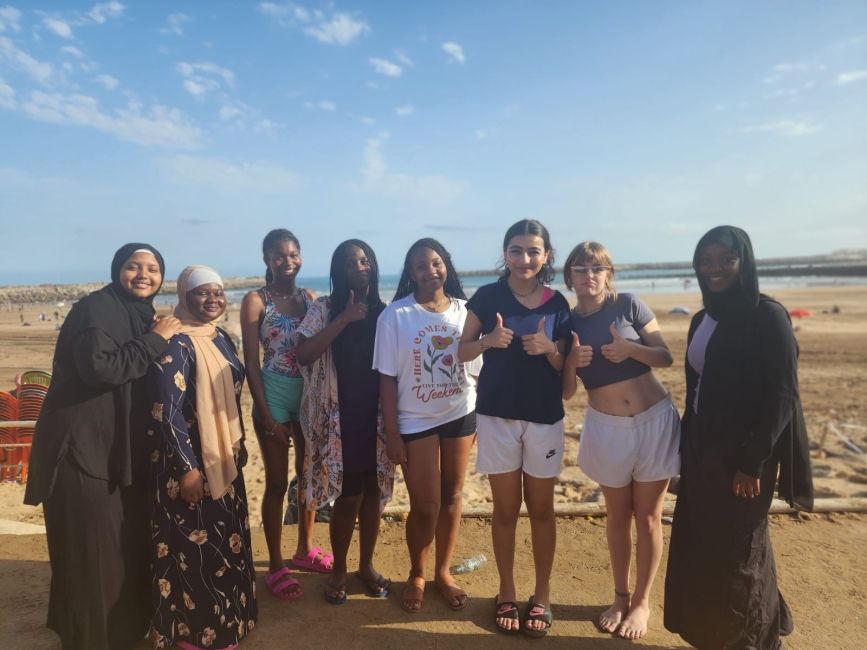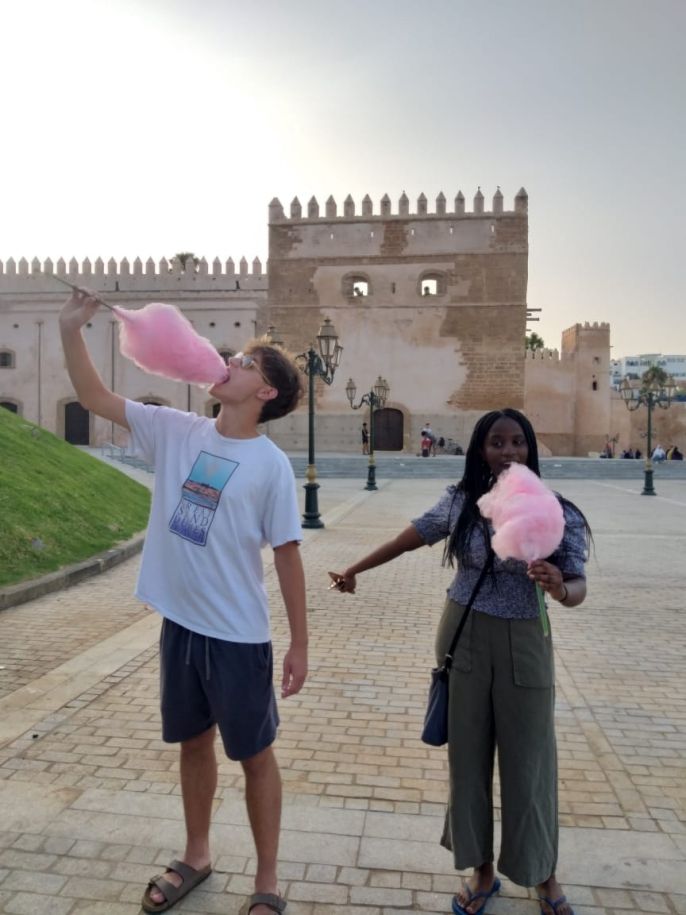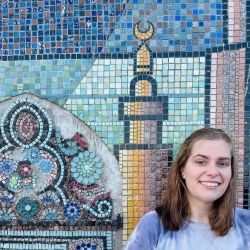The First Week - A Student's Perspective - Andrea Kaluma
Our HSSA students have officially completed the first week of their program here in Rabat! As part of the program, each week students submit weekly reflection journals as they reflect on their experiences. These journals are meant to help the students think about their experiences in context and also navigate their thoughts on cultural differences and nuances. Today we are sharing Andrea's reflections from the first week.
Day 1, Tuesday July 11:
There was a level of nervousness and anxiety filled in my expression as I walked in through the gates of the school. I had taken the taxi with my host mother, trying to suppress the sheer nerves. At the time, the only word I actually knew in Darija was “Mesyan.” There was a slight feeling of pressure, knowing that eventually, we would have to ride the taxi by ourselves and aptly communicate in the language to get to school on time.The program leaders, however, once we arrived, had a certain warmth that eased our stress. When we were sent off to class, the teacher began the lesson with Classical Arabic, also known as Fusha. We were tasked with writing the letters in first, middle and final position. I was initially scared, as the positions of the letters were not as fresh in my memory as the other content. Our teacher, Oustad Mubarak was very patient and understood our nerves as it was our dirst day of class. My peers and I would exchange looks as he would ask us to stand up and demonstrate the content we learned. In the second half of class, we focused on Darija to prepare and enhance our knowledge before our conversations in the community. We learned how to say, “Salam! Ana smiti Andrea. Ana taliba ou kamqra Darija f Ciee,” which were mixed in with phrases such as “Aafak,” “Bezaf,” and “Shukran.” Further on, in pairs, we would model conversations in class before going into the city to ask people questions. When we went to the city, everyone was very nervous to go up and talk to people. It was an element of fear, that highlighted our American-esque mindset, where we did not want to bother other people. However, once we went up to people, especially Abdula at Al Hanout, they were very friendly and welcoming. They were patient and worked to help us understand Darija, and I found myself being able to hold a conversation. These community conversations are very rewarding, as we have gotten more immersed in the community and brought closer to achieving our goals of understanding the language.
Day 2, Wednesday July 12:
The second day of school was less daunting, in that I felt a bit more seasoned in terms of travelling and attending school. I met up with a couple of friends before class, and there was a sense of relief in that we were all getting over the nervousness. The next day, we were taught how to ask people their age and where they were from. It was so interesting to see just how close everyone lived to each other in the medina. When I went to Steve Madden with Mecca, we had an ongoing conversation with the staffers and their sheer warmth and welcoming made it easier to not get nervous. They were happy to see us learning Darija. This aspect of communal kindness and collectivism, as Madiha told us, was truly admirable. As a group of Americans, it is almost taboo to ask adults about their age but here in Morocco there is an embrace of youth as well as growing older. Mecca and I were uplifted by the kindness and warmth presented by the people, and it made it easier to talk to more and more overtime, even using our vocabulary to order food and other great items. In class, we got to play a game where we would guess vocabulary and try to get to the board as fast as we could in order to win points for guessing the right word. As competitive and silly as the competition was, it was certainly helpful and I was able to connect the words we learned yesterday to the concepts/terms we learned today.
Day 3, Thursday July 13:
Today, we were very busy! First, we had Fusha and Darija class, where we learned terms such as “3ashi,” “Smehli,” “Kabir/Kabira,” “Sugir, sugira” etc. We are now in the full swing of learning concepts, and we are able to better comprehend the Darija we are learning. Then, we went out into the street to apply our knowledge. We then went into the streets and began interacting with the local folks of Agdal, but this time it was with a seasoned, more confident state of mind. Today, I had decided to go into certain stores by myself and focused on garnering enough confidence to form interactions with the people of the Agdal community. As lunch rolled around, I felt relieved yet proud of my progress, as I was now able to order food and drinks with my friends and feel more comfortable talking to employees, neighbors, passing byers.
Written by Andrea Kaluma
Related Posts
Weekend in Marrakesh
Our Weekend in Marrakesh - This blog was written by one of our students - Nyx Lange Reflecting on our past weekend excursion to Marrakesh from our Moroccan base of... keep reading
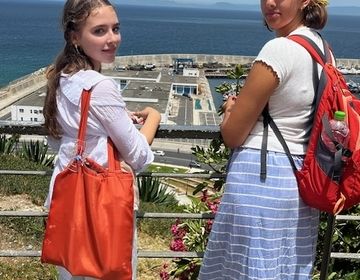
Exploring Tangier: A Day in Morocco's Gateway to Africa
This past weekend, our group ventured to the north of Morocco to the vibrant city of Tangier where the Mediterranean Sea meets the Atlantic Ocean First, we met our guide... keep reading
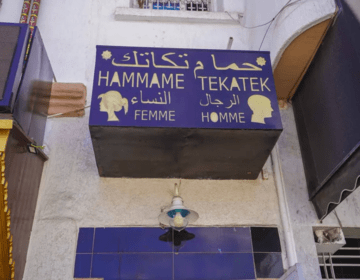
Bssaha wa Raha L'hammam🚰🪣🧼 بالصحة و الراحة الحمام
By Program Leader, Mohsin: Hey everyone! As your Moroccan program leader, I’m thrilled to introduce you to one of our country’s most cherished traditions: the hammam. If you’ve never heard... keep reading
